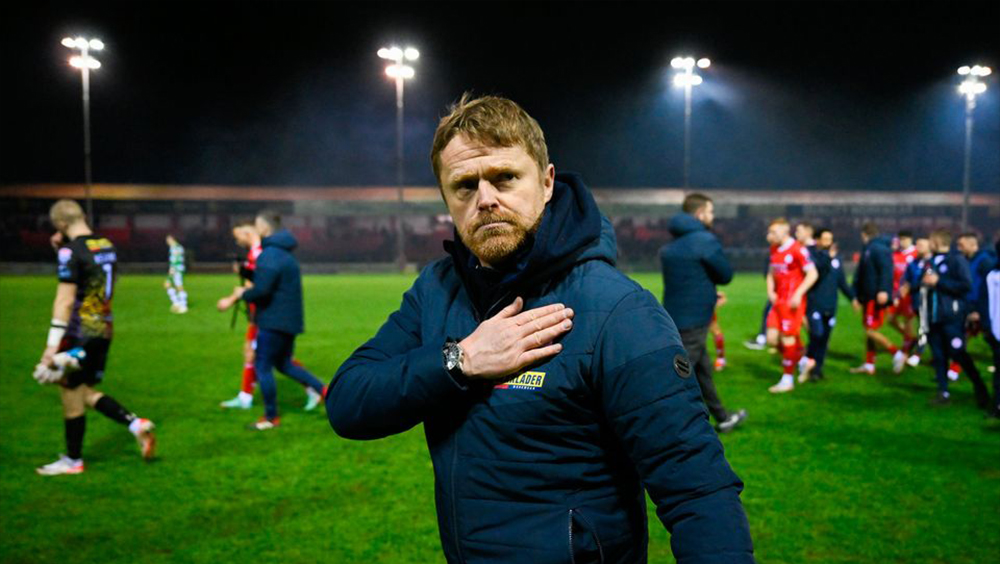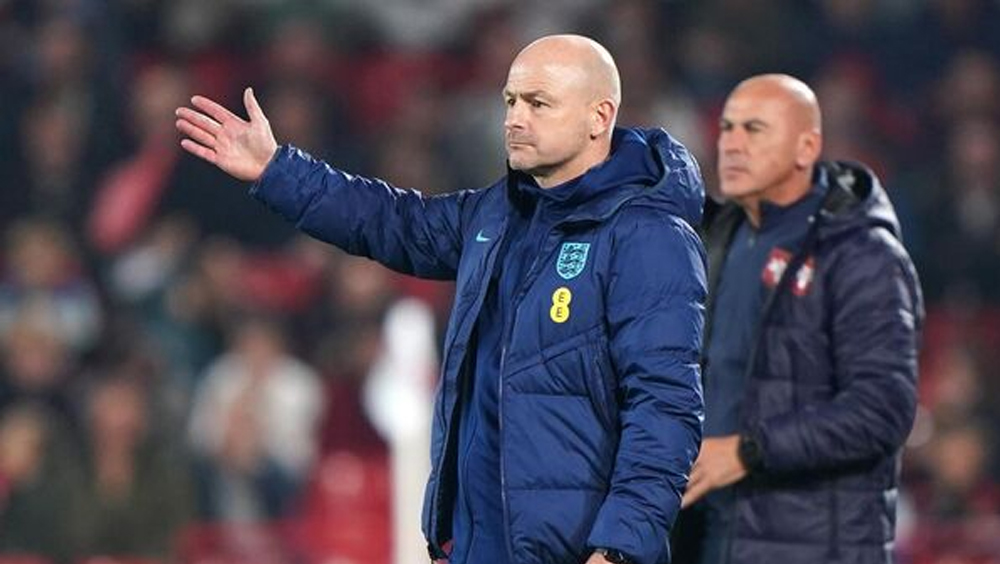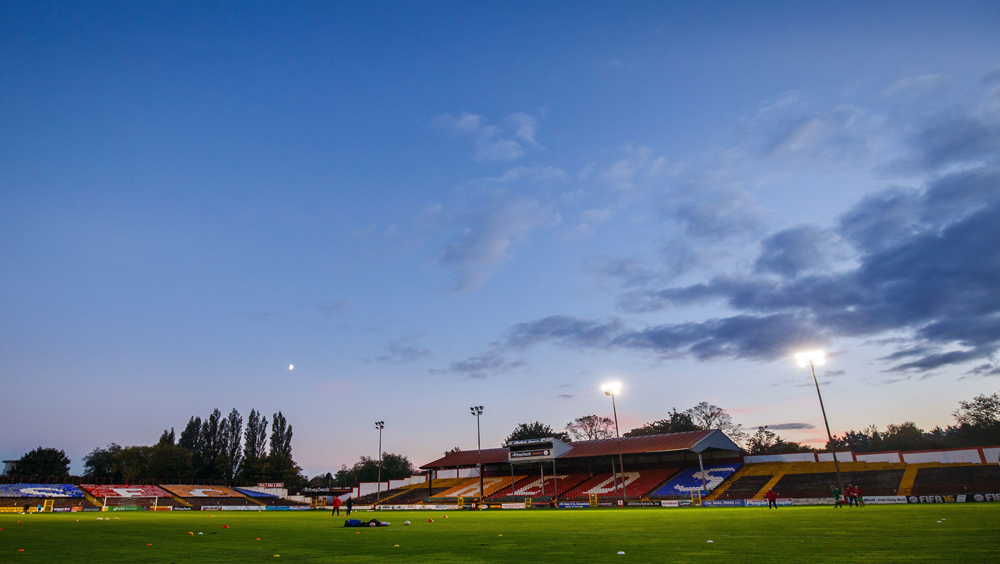Shelbourne manager Damien Duff is rarely shy of a prickly soundbite and last week was no exception.
When asked last Tuesday to comment for the umpteenth time on speculation relating to the Irish senior men’s managerial job, he proclaimed that “the League of Ireland is the shining light of Irish football. You’d say the women are on a par with it. Can’t wait to watch that game tonight.”
In recent years, Duff has emerged as a captivating if cantankerous commentator on all things Irish football in recent years, and more often than not, he’s right.
That Friday evening, Duff’s top of the table Shelbourne played Bohemians in front of a capacity 5,700 crowd in Tolka Park, including the provision of an additional 1,000 temporary seating to meet ticket demand for the north Dublin derby.
Earlier in the week, the Ireland versus England women’s international was played in front of 32,742 at the Aviva Stadium. The most remarkable element of the match was how unremarked upon the near-record attendance was, particularly when competing for football eyeballs with two of the biggest men’s Champions League fixtures of the season that same evening.
These are not the only good-news stories in Irish football right now; our once stuttering underage system is belatedly bearing fruit, and after a four-year hiatus, the Irish senior men’s team finally has a title sponsor.

Despite these green shoots, Irish football is still beset with challenges, and a disproportionate number of these sit at the door of the FAI.
We are nearly four years into the post-Delaney era. The association continues to work hard to distance itself from the sins of the previous regime. However, its road to redemption has been far from plain sailing; with CEO Jonathan Hill’s much chronicled pay controversy being the most obvious own goal.
Whilst certain pockets of Irish football radiate a newfound positivity, the incumbent FAI regime appears incapable of capitalising on this sentiment. They are stuck in a loop of progress followed by preventable setbacks. The past month is a perfect illustration of this dynamic.
Failure to capitalise on good news stories
On Wednesday, 20 March, the FAI confirmed Sky as the new primary sponsor of the men’s senior team.
In recent years, the absence of a primary sponsor had become an obvious stick to beat the financially stricken FAI with. This was all the more pronounced given Hill’s noted credentials across the pond in the sponsorship space.
Therefore, although the financials of the deal remain undisclosed, in principle, the four-year sponsorship stands as a genuine win for the FAI. Particularly, at a time when it badly needs one, amidst its prolonged quest for a new Ireland manager.
Despite this context, the sponsorship announcement was curiously muted, with the FAI opting against making Hill and others available to media. If one was to speculate, the prospect of Hill and his team potentially facing difficult questions days in advance of an FAI board meeting was probably front of mind.
In the same 24 hours, Lee Carsley, the England under 21s manager and frontrunner for the Republic of Ireland job, gave an interview to the Daily Mail (UK edition), effectively removing himself from consideration. Describing his interaction with the FAI, Carsley stated, ‘We had an initial conversation in November… It went no further.’
This revelation surfaced approximately nine months after Carsley was first linked to the Ireland job and it appeared to wrong-foot Irish sports media. Cue mass deflation.
The manner of this public disclosure prompted many to ask why did the FAI allow Carsley’s name to be continuously linked to the job, if privately, he had long since ruled himself out?

Obviously, the FAI can’t control media speculation, but it can certainly take steps to influence it and address inaccuracies via off the record briefings, with the ultimate goal of expectation management.
Instead, they have remained passive throughout, beyond alluding to delays relating to ‘existing contractual obligations’ of their preferred candidate.
In doing so, they have allowed a drip-feed of false dawns and missed deadlines; with media speculation ruling candidates in, then out, and then back in again, the latest of which being the former Republic of Ireland assistance coach Anthony Barry.
So why does this matter? Short of the FAI pulling a managerial rabbit out of the hat, news of any (subjectively) inferior appointment will likely be met with discontent and unfavourable comparisons to Carsley and other previously muted aspirational managerial appointments. In effect, it will eat into the good-will off the yet-to-be appointed manager before a ball has even been kicked.
Lobbying with the handbrake up
Whilst the search for a manager splutters on, the other big-ticket item facing the FAI is the challenge of securing public funding for its €863m investment plan.
This week’s Irish women’s international, coupled with the sold-out north Dublin derby represented ideal platforms for the FAI to tell a new story about Irish football and highlight the untapped potential of the League of Ireland, including the manifold potential economic, health and community upsides.
In an ideal world, Hill and his executive team, flanked by the great and good of Irish football, would have been on the terraces of Tolka Park on Friday evening, with Government decision makers and media opinion shapers, in full sales mode. It was the perfect opportunity to engage members of government away from the formality and strain of an Oireachtas Committee room and paint the picture of the league’s seismic potential, and doing so in terms that resonate with the Government’s own strategic goals.
Instead, they are stuck on the back foot, for fear of being once again publicly dragged over the coals on recent corporate governance failures.

Disabling recent muscle memory
The FAI is clearly still an organisation in transition, and in the face of potential criticism, it is not uncommon for such organisations to over-correct their course or second guess themselves, in an attempt to be seen to do the right thing.
In isolation, the FAI’s protracted efforts to appoint a new manager isn’t an issue. However, in recent weeks, the association has looked like an overly passive organisation both scared of its own shadow and paralysed at the prospect of making a mistake. In effect, it is attempting to go about its business with the handbrake pulled up.
To advance its strategic priorities, it must reset and (selectively) re-engage with its critics, eat some short-term humble pie, and look to strategically lead and capitalise on the emerging feel-good factor in Irish football.

With his intelligent communications skillset and extensive media connections, Paddy helps clients build stand-out messaging and achieve their business objectives, whether they’re a start-up raising seed capital or an established player pushing for industry reform or telling their employer brand story. Paddy has been published in a number of national publications, including the Business Post, Irish Independent, Fora.ie, and The42.ie on the theme of strategic communications and reputation management.
Article originally published on 14 April 2024 in the Sunday Independent: https://www.independent.ie/sport/soccer/fai-coming-across-as-scared-of-its-own-shadow/a1467229738.html
